mental health

Shermer and Weinstein discuss AI’s impact on social media platforms and personal relationships, solutions to combat teen mental health issues, and strategies for parental control. They examine protective measures, Web3’s promises regarding privacy and data ownership, and methods to defeat bots and trolls. The conversation also explores social media’s potential mental health benefits, creating equitable creator economies, and operating without surveillance capitalism.
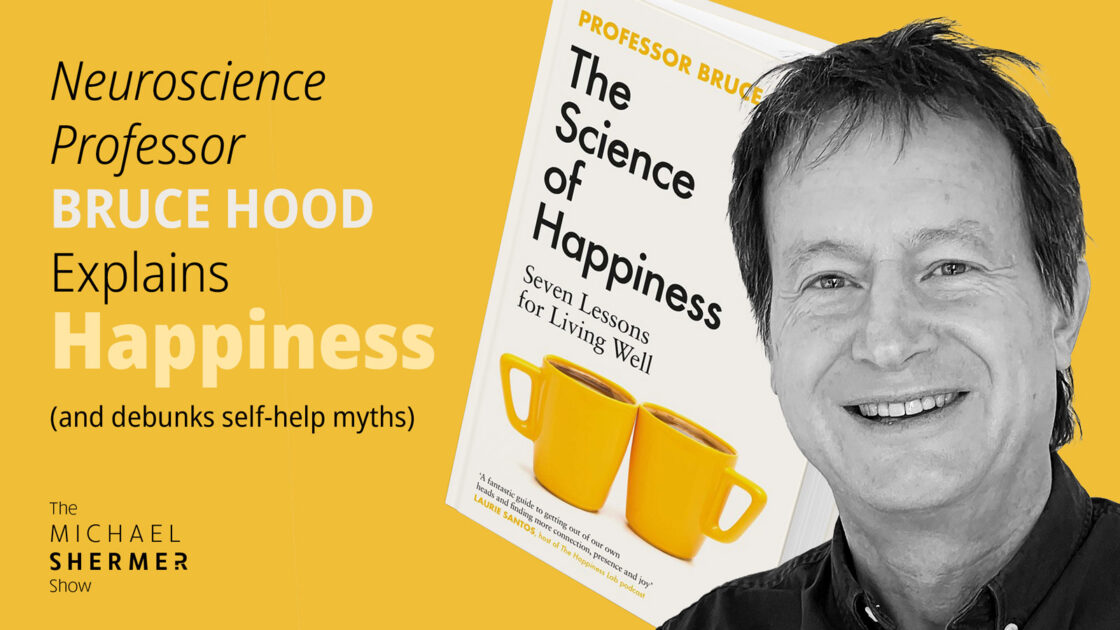
Shermer and Hood discuss: psychedelic drugs • defining the “good life” or “happiness” • measuring emotions • happiness as social contagion • eudaimonia (the pursuit of meaning) versus hedonism (the pursuit of pleasure) • genetics and heritability • cultural components • WEIRD people • The Big Five (OCEAN) • marriage and health • exercise and stress reduction • what the ancient Greeks got right about living the good life • how failure may actually be a key to more happiness…

Shermer and Shrier discuss: Irreversible Damage redux: WPATH Files • what view this book for or against • what is the problem to be solved? • theories: coddling, social media, screen time, generations/life history theory • good and bad therapists and therapies • anxiety, depression, suicidal ideation, autism • ACE (Adverse Childhood Experience) • trauma, stress, PTSD • anti-fragility and resilience • Goodwill Hunting view of therapy • previous quack therapies and psychological pseudoscience that have plagued psychology and psychiatry.

While not going so far as arguing, as some have, that psychotherapy is always effective, I’d like to present some data and offer some contrasting considerations to Harriet Hall’s article: “Psychotherapy Reconsidered” (in Skeptic 28.1). Probably no other area within social science practice has been so inordinately and unfortunately praised and damned. Many of us […]

What happens when sex is more about identity than pleasure, intimacy, or interaction? And what happens when culture warriors gang up on sexuality—and from several directions? And has this affected our mental health? After over 40 years and 40,000 sessions with individuals and couples as a Licensed Marriage and Family Therapist and Certified Sex Therapist, […]
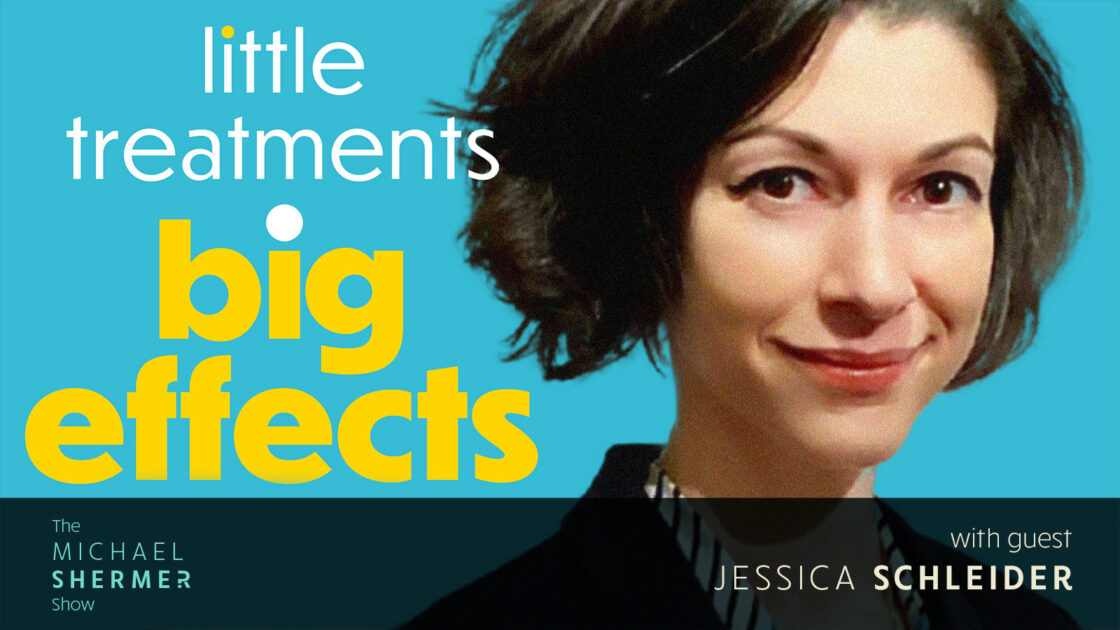
Shermer and Schleider discuss: her own experience with mental illness and eating disorder • 80% of people meet criteria for a mental illness at some point in their life • the goal of therapy • navigating therapy modalities, access, payments, insurance • What prevents people from getting the mental health help they need? • outcome measures to test different therapies • traditional therapy vs. single-session interventions • growth mindset • Cognitive Behavior Therapy (CBT) • difference between goals and values…

Shermer and Mandel discuss: the problem of woke ideology • anecdotes vs. data about woke actions and intentions • sex and gender • woke medicine • transgender affirming care • government vs. private responses to social movements and ideas • Trump, DeSantis, Liz Cheney, the Lincoln Project, and other GOP issues • abortion: pro-Choice or pro-Life? • support for children: government or private? • What is “the left” and how does it differ from liberalism, classical liberalism, and libertarianism? •…
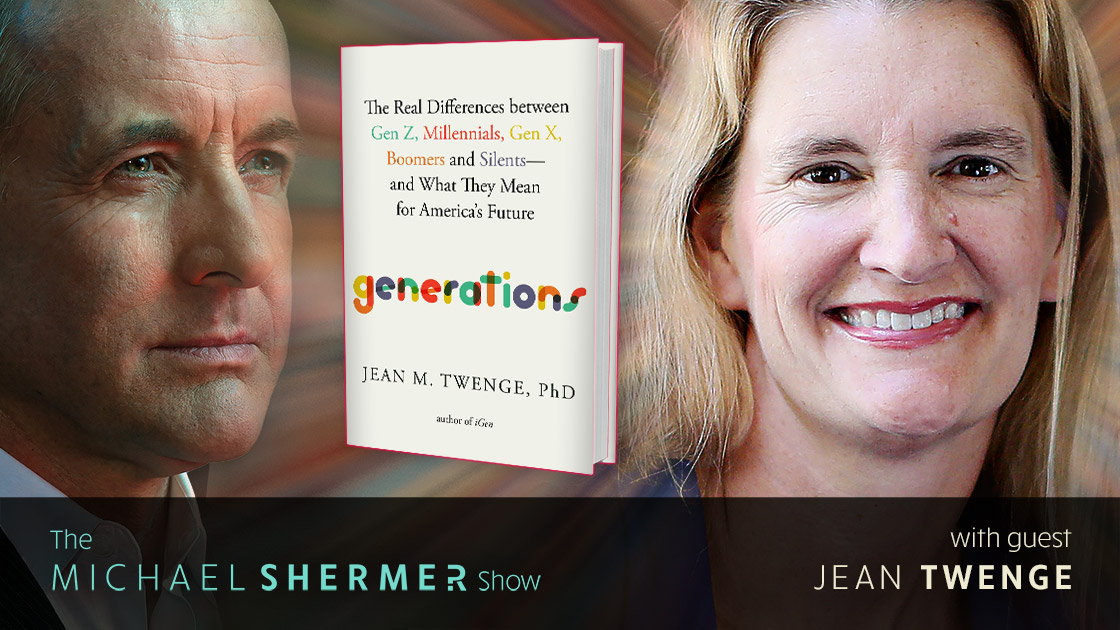
Shermer and Twenge discuss: untangling interacting causal variables (age, gender, race, religion, politics, SES, big events, slow trends, time-period effects, and generational effects) • fuzzy sets/conceptual categories • how historical events effect generations: the Great Depression, WWII, the Cold War and its end, AIDS, 9/11, The Great Recession, Covid-19, #metoo, #BLM, trans, AI • how long-term trends effect generations • technology as a driver of generational differences • civil rights, women’s rights, gay rights, trans rights • abortion and reproductive…

Is psychotherapy effective? Which of the many types is best? Are certain therapies better suited to treat certain problems? How can you rationally choose a therapist? Is it better to pick a psychiatrist, a psychologist, or some other type of counselor? There is a veritable cornucopia of individuals offering advice about mental health issues, from celebrities to life coaches to pastors to concerned friends, some with formal training and some with no credentials at all. Does psychotherapy ever make patients…
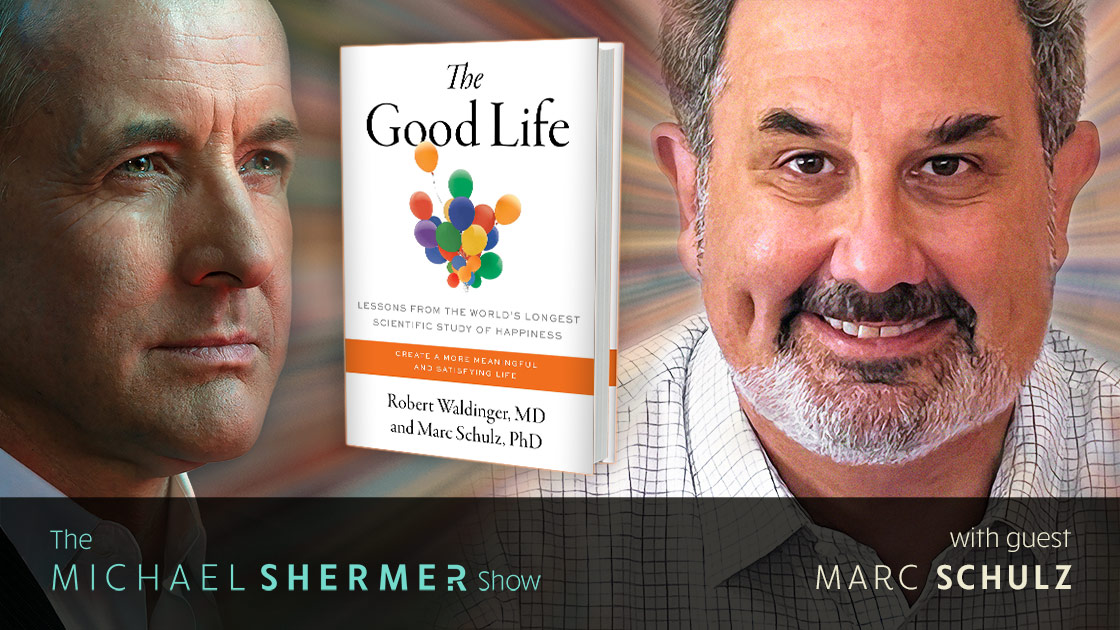
Shermer and Schulz discuss: an operational definition of the “good life” or “happiness” or “well being” • the reliability (or unreliability) of self-report data in social science • relative roles of genes, environment, hard work, and luck in how lives turn out • personality and to what extent it can be scientifically measured and studied • factors in early childhood that shape mental health in mid and late life • generational differences: • the impact of loneliness • misconceptions about happiness…
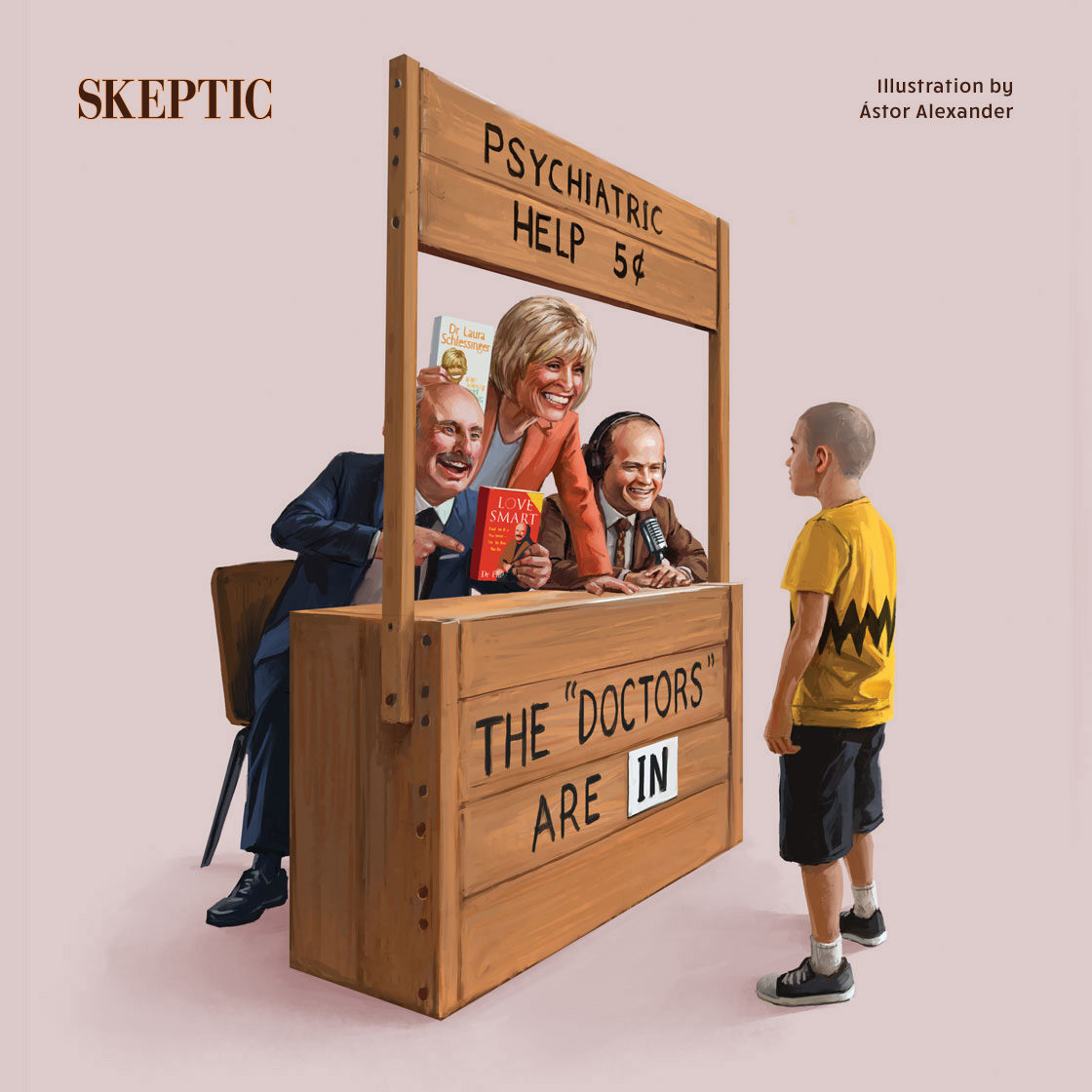
Scientifically trained psychologists and social scientists have long been skeptical of clinical psychotherapy techniques because they are so dependent on anecdotes instead of data. In response, clinicians with scientific training have developed data-based techniques, like Cognitive Behavior Therapy. But these new techniques have not trickled down to pop psychologists like Laura Schlessinger (Dr. Laura) and Phil McGraw (Dr. Phil), along with self-help gurus like Tony Robbins. This article critiques these pop psych nostrums.
Announcing Skeptic 27.1: Transgender Matters — an overview of the debate, research, and policies; supporting kids who identify as transgender or who are experiencing gender dysphoria (marked distress at an incongruence between gender identity and biological sex).
Social psychologist Carol Tavris thoughtfully explores and questions “affirmative trans medicine,” the latest dangerous medical practices bubble. Few question the mystifying explosion of cases of gender dysphoria among adolescents and the proliferation of clinics to treat them. Vulnerable teens and baffled parents resort to internet misinformation and succumb to biased media influence, while experts spurn exploratory therapies and promote untested treatments that have long-term effects. Dissenters are vilified and silenced as being transphobic.
Social psychologist Carol Tavris thoughtfully explores and questions “affirmative trans medicine,” the latest dangerous medical practices bubble. Few question the mystifying explosion of cases of gender dysphoria among adolescents and the proliferation of clinics to treat them. Vulnerable teens and baffled parents resort to internet misinformation and succumb to biased media influence, while experts spurn exploratory therapies and promote untested treatments that have long-term effects. Dissenters are vilified and silenced as being transphobic. PLUS: Michael Shermer Speaks with Johnjoe McFadden…
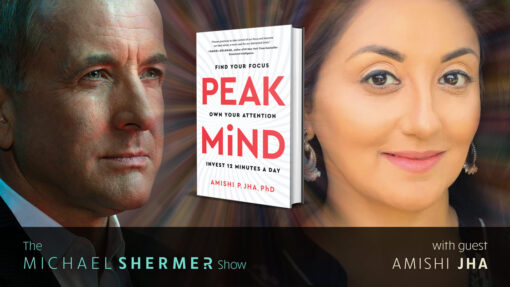
In episode 232, Michael Shermer speaks with neuroscientist and professor of psychology, Amishi Jha, about how to achieve Peak Mind, based on her book Peak Mind: Find Your Focus, Own Your Attention, Invest 12 Minutes a Day.
In episode 232, Michael Shermer speaks with neuroscientist and professor of psychology, Amishi Jha, about how to achieve Peak Mind, based on her book Peak Mind: Find Your Focus, Own Your Attention, Invest 12 Minutes a Day.

If ever there was an urgent need for a frank understanding of what’s going on with men, it is now. Male rage and frustration have driven resurgent populism, mass shootings, and epidemics of addiction and violence. Powerful men who have abused their positions for decades have been and are being #MeToo-outed and dismissed. The patriarchy, that solid bedrock of male power for thousands of years, seems to be crumbling…
In Science Salon # 92 Michael Shermer speaks with Tim Samuels about his brand new book: Future Man: How to Evolve and Thrive in the Age of Trump, Mansplaining, and #MeToo. PLUS: Michael Shermer reviews The Violence Paradox, a PBS NOVA film special based on Steven Pinker’s book The Better Angels of Our Nature.





















